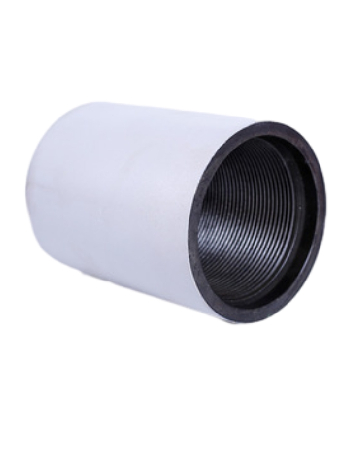- Afrikaans
- Albanian
- Amharic
- Arabic
- Armenian
- Azerbaijani
- Basque
- Belarusian
- Bengali
- Bosnian
- Bulgarian
- Catalan
- Cebuano
- Corsican
- Croatian
- Czech
- Danish
- Dutch
- English
- Esperanto
- Estonian
- Finnish
- French
- Frisian
- Galician
- Georgian
- German
- Greek
- Gujarati
- Haitian Creole
- hausa
- hawaiian
- Hebrew
- Hindi
- Miao
- Hungarian
- Icelandic
- igbo
- Indonesian
- irish
- Italian
- Japanese
- Javanese
- Kannada
- kazakh
- Khmer
- Rwandese
- Korean
- Kurdish
- Kyrgyz
- Lao
- Latin
- Latvian
- Lithuanian
- Luxembourgish
- Macedonian
- Malgashi
- Malay
- Malayalam
- Maltese
- Maori
- Marathi
- Mongolian
- Myanmar
- Nepali
- Norwegian
- Norwegian
- Occitan
- Pashto
- Persian
- Polish
- Portuguese
- Punjabi
- Romanian
- Russian
- Samoan
- Scottish Gaelic
- Serbian
- Sesotho
- Shona
- Sindhi
- Sinhala
- Slovak
- Slovenian
- Somali
- Spanish
- Sundanese
- Swahili
- Swedish
- Tagalog
- Tajik
- Tamil
- Tatar
- Telugu
- Thai
- Turkish
- Turkmen
- Ukrainian
- Urdu
- Uighur
- Uzbek
- Vietnamese
- Welsh
- Bantu
- Yiddish
- Yoruba
- Zulu
api 5ct casing coupling
Understanding API 5CT Casing Couplings A Comprehensive Overview
API 5CT, the specification for casing and tubing used in the petroleum and natural gas industries, plays a crucial role in the safe and efficient extraction of resources from beneath the Earth's surface. One of the most important components within this specification is the casing coupling, which serves as a vital intermediary in connecting lengths of casing, ensuring structural integrity and the prevention of external contaminants.
What is API 5CT?
Before delving into the specifics of casing couplings, it's essential to understand what API 5CT encompasses. Developed by the American Petroleum Institute (API), API 5CT sets the technical standards for the manufacturing of casing and tubing materials used in oil and gas wells. The specification details the different grades of steel and the corresponding specifications for their physical and chemical properties, ensuring they meet the rigorous demands of the oilfield environment.
The Role of Casing and Couplings in Oil and Gas Extraction
Casing is a series of steel pipes that are inserted into the drilled borehole to stabilize the well's walls and prevent groundwater contamination. The casing is crucial for maintaining pressure, isolating different formations, and facilitating the safe transport of hydrocarbons to the surface. As the drilling process progresses, various lengths of casing are required, and this is where casing couplings come into play.
Casing couplings are short sections of pipe that connect two lengths of casing together. They are designed to withstand high pressures and temperatures encountered in deep wells while also resisting corrosion and other environmental effects.
Casing Coupling Types
1. Flush Joint Couplings These are designed with the outer diameter matching that of the casing pipe, providing a smooth transition from casing to coupling. This design is less susceptible to damage during handling and installation.
2. Regular Couplings Regular couplings are thicker than flush joint couplings, allowing for easy installation and providing additional strength. They are commonly used in standard applications where the stresses on the pipe are not as extreme.
api 5ct casing coupling

3. Special Couplings In more challenging environments, special couplings (or premium couplings) may be required. These couplings can be designed to accommodate specific conditions, such as high temperature and pressure scenarios, or they can be customized for individual field requirements.
Quality and Standards
Casing couplings are subject to stringent quality controls to ensure compliance with API 5CT specifications. This includes rigorous testing for tensile strength, yield strength, and elongation to ensure they can endure the harsh conditions found in drilling operations. The manufacturing process also typically involves operations like heat treatment to improve durability and resistance to failure.
Additionally, certifications such as ISO 9001 may be sought by manufacturers to demonstrate their commitment to quality management systems in producing casing couplings. Adhering to these standards not only enhances reliability but also promotes safety throughout the drilling process.
Installation and Maintenance
Proper installation of casing couplings is critical; failure to do so can lead to catastrophic failures, including leaks, blowouts, or well collapses. It is essential for crews to be trained in best practices for handling and installing casing and couplings. Regular inspections should also be conducted to identify any signs of wear, corrosion, or damage to the couplings throughout the life of the well.
Furthermore, advancements in technology, such as non-destructive testing (NDT) methods, allow for better assessment of the integrity of both casing and couplings, helping to predict maintenance needs and ensuring safe operations.
Conclusion
API 5CT casing couplings are indispensable components in the oil and gas industries, facilitating the connection of casing pipes with high strength and reliability. Understanding their types, manufacturing standards, and the importance of proper installation and maintenance is essential for ensuring the successful and safe extraction of natural resources. As technology continues to evolve, the enhanced performance and reliability of casing couplings will contribute significantly to the efficiency and safety of future drilling operations. Emphasizing quality and adherence to API standards not only protects investments but also safeguards the delicate balance of natural resource extraction and environmental conservation.
-
Tubing Pup Joints: Essential Components for Oil and Gas OperationsNewsJul.10,2025
-
Pup Joints: Essential Components for Reliable Drilling OperationsNewsJul.10,2025
-
Pipe Couplings: Connecting Your World EfficientlyNewsJul.10,2025
-
Mastering Oilfield Operations with Quality Tubing and CasingNewsJul.10,2025
-
High-Quality Casing Couplings for Every NeedNewsJul.10,2025
-
Boost Your Drilling Efficiency with Premium Crossover Tools & Seating NipplesNewsJul.10,2025







